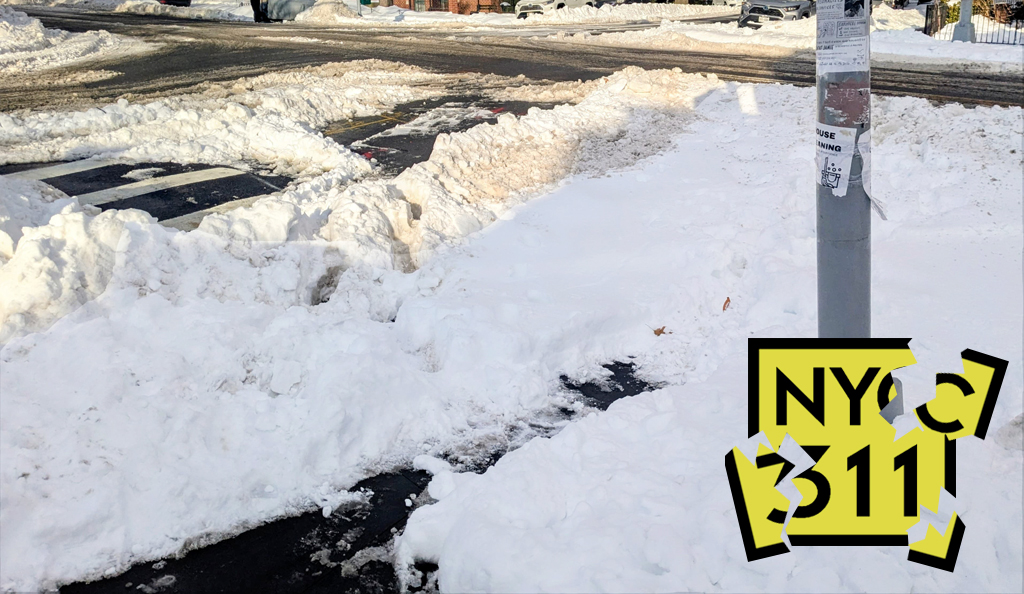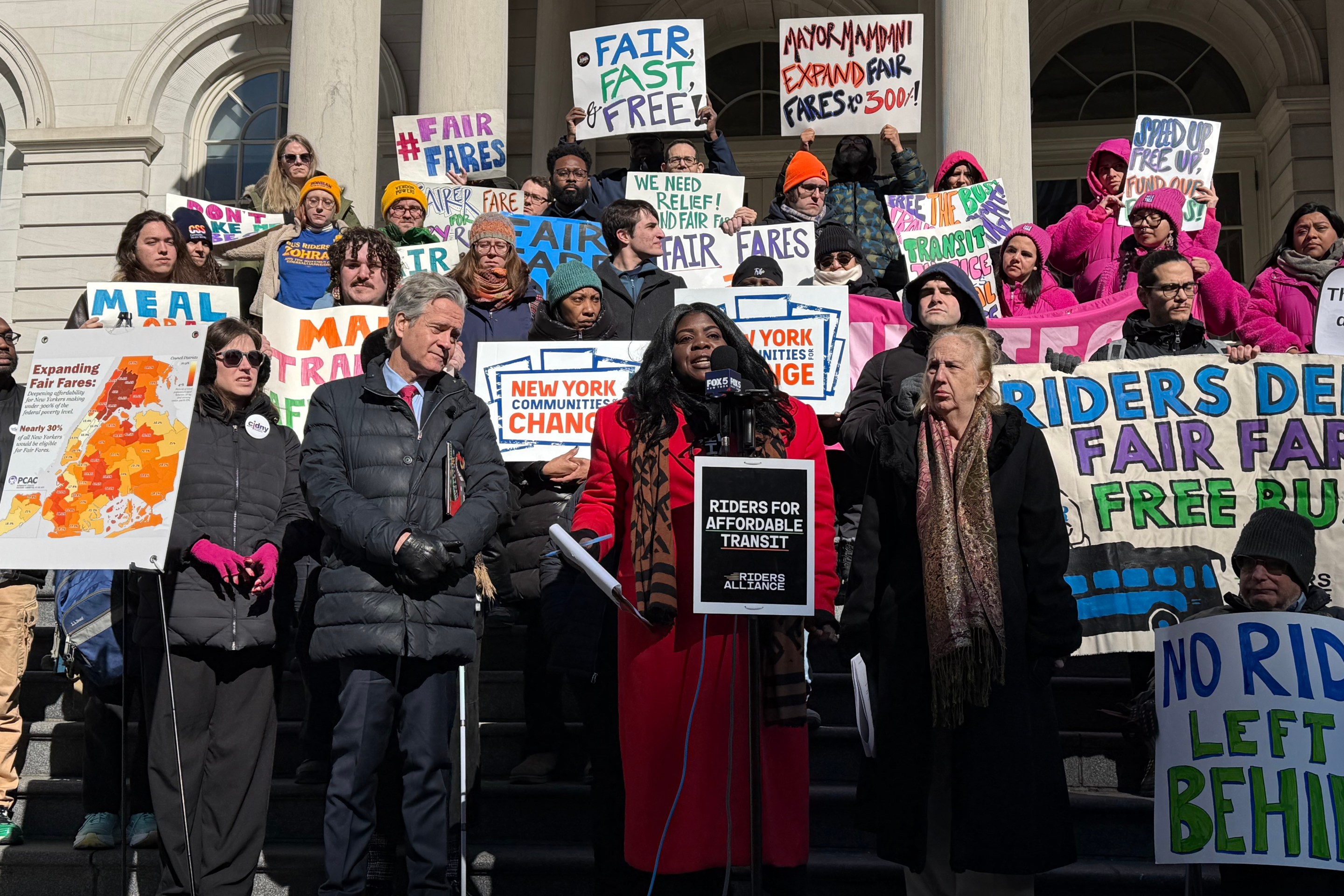If U.S. transportation policy was a species from "Star Trek," you'd have to go with the Tribble: lacking any discernible purpose except to reproduce the same form with suffocating regularity. The result is a transportation network marked by car-dependence, exorbitant gas
consumption, and high rates of crash-related injuries and death.
 Would logical transportation policies have allowed New York's Champlain Bridge to deteriorate so badly it had to be demolished? Image: TSTC
Would logical transportation policies have allowed New York's Champlain Bridge to deteriorate so badly it had to be demolished? Image: TSTCWhat if our planning decisions had some Spock-caliber logic behind them instead? Some of the New York area's leading transportation officials and advocates gathered at NYU's Rudin Center yesterday to talk about the practical and political hurdles of adopting a purposeful transportation policy based on goals and measurable data.
They were on hand to discuss Performance Driven, the report released last summer by the Bipartisan Policy Center's National Transportation Policy Project. The main thrust of the report is that America's transportation policy needs national objectives. We can't just divide the spoils of the gas tax between states and call it a day. With a more Vulcan approach to our decisions, the report suggests, we can build a
safer, greener, more efficient transportation network.
Yesterday's panelists, including NYCDOT Commissioner Janette Sadik-Khan, RPA President Bob Yaro, and Tri-State Transportation Campaign Executive Director Kate Slevin, generally agreed that Performance Driven lays out the right goals for reform: economic growth, national connectivity, metropolitan access, energy security/environmental sustainability, and safety. As more than one participant noted, however, the devil is in the details.
Sadik-Khan praised the report but noted that, in general, national goals can be stymied if legislators and officials don't choose the right way to evaluate performance. "Are we going to measure the effectiveness of the highway two months after it opens," she asked, "or five years after it opens?" The answer could mean the difference between continuing to build business-as-usual sprawl or shifting to a more transit-oriented America.
When asked if well-defined national objectives would constrict her options at the local level, Sadik-Khan replied that cities are actually in the best position to deliver goals like increased safety and accessibility. "I don't think they're opposed," she said, noting that the feds can achieve certain objectives faster through "direct aid to cities, without parking
that aid for a year at the state." (One of the NTPP recommendations is the creation of a federal grant pipeline directly to metro areas.)
The strongest notes of caution yesterday were sounded by Tri-State's Slevin, who returned to the theme that crafting, implementing and enforcing objectives for transportation projects is exceedingly complex and fraught with the potential for missteps. "Performance measures are imperfect," she said. "We'd heard that in California,
performance measures were recommending highway expansion."
Slevin also suggested a missing component in the NTPP's goals: equity. "How do you protect people in urban areas who really need
transit service?" she asked. "We have to make sure we're investing in the right
transit projects, in urban areas -- investing in buses for people who
need them, instead of just building light rail lines in suburban areas."
The RPA's Yaro took a more sanguine perspective, arguing that a relatively small dose of incentives can go a long way. "We've seen politicians perform unnatural acts to position themselves" for USDOT's high-speed rail funding, he said. "In Florida, Governor Crist did a 180 degree turnaround, from abolishing the HSR commission
to embracing it."
Even if a highly logical policy vision can be crafted -- and many panelists credited Jim Oberstar's House transportation bill for incorporating several ideas in the report -- there's still the small matter of getting it approved by the Klingon High Command. Er, the U.S. Congress.
As USDOT's move to incorporate livability criteria into its transit funding decisions just demonstrated, however, not every reform needs to survive the Capitol Hill gauntlet before it can take effect. "Maybe the best way to do this," said Yaro, "is to do as much as possible without waiting for 60 Senators to wrap their arms around it."
Still, no matter how enlightened policy at the federal level may become, Slevin cautioned, local livable streets advocates will always need to stay on their toes. "My concern is that a lot of the decisions are left up to the
states," she said, "and unless that completely changes, even if we get a complete
overhaul of federal policy, we'll still have a lot of battles at the state
level over how it's implemented."





